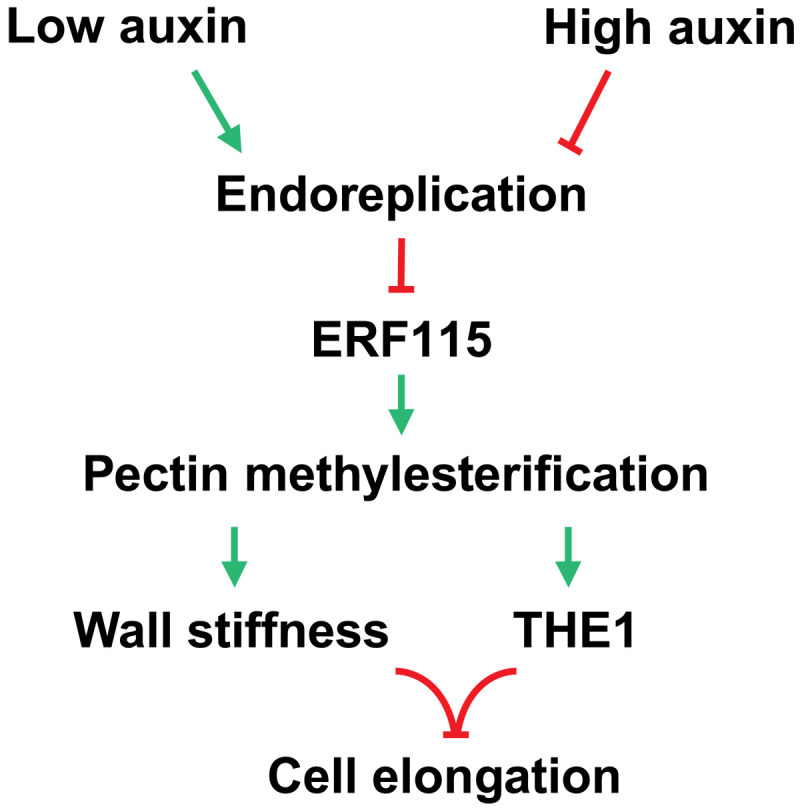Fig. 6. A model for endoreplication-mediated mechanochemical control of cell elongation.

PIN protein–dependent polar auxin transport establishes auxin response asymmetry that controls spatial differences in endoreplication. Endoreplication negatively regulates ERF115 family transcription factors. ERF115 (and related members) regulates cell wall properties via modulation of HG methylesterification levels. Cell elongation is then controlled by mechanical properties of the cell wall (stiffness) and signaling via cell wall integrity kinase THE1, a proposed mediator of HG methylesterification levels, thus linking endoreplication with control of cell size via a mechanochemical feedback.
